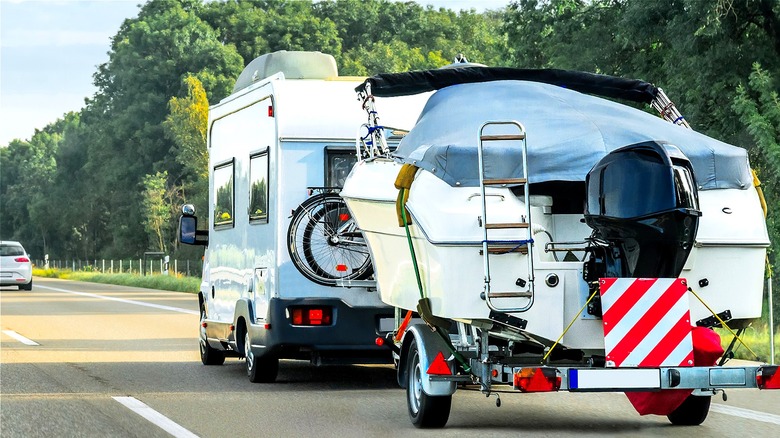How Lifestyle Inflation Actually Costs You, And What You Can Do To Avoid It
After months of searching for a new job (here, by the way, is the best time of year to look), you finally have been offered a position. Not only does the job description perfectly match your skills, it's at a company that offers a much higher salary than your last employer. Quickly, you've gone from making about $50,000 annually and living paycheck to paycheck to bringing in nearly $100,000. Naturally, you want to celebrate this well-deserved increase in income accordingly.
This may involve finally moving out of that cramped studio apartment and into a spacious one-bedroom in the heart of town, opting for luxury brands over Shein, or booking that all- inclusive getaway you've been eyeing for some time. You have a higher income now, so why not?
However, at the end of the month, you're surprised to see there's barely anything left in your bank account. In fact, you're still living paycheck to paycheck. This phenomenon of having more money but still struggling financially is known as lifestyle inflation, or lifestyle creep, which can occur slowly over time (or "creep" up on you) as your normal spending habits rise with your income.
Warning signs of lifestyle inflation
People fall victim to lifestyle inflation when they experience an income increase and then begin spending more on nonessentials without keeping track of their spending habits. Though they believe their higher pay will easily cover things like a pricier rent, more frequent restaurant outings, and retail splurges, they're unknowingly living beyond their means.
There are several ways to determine whether or not lifestyle creep is, well, creeping up on you and your finances. These include not having any money left over from your paycheck to add to a savings account or an emergency fund, continuing to buy nonessentials despite having high credit card debt, and feeling as though you need to keep spending in order to maintain a certain image, even though the things/experiences you're buying don't bring you joy anymore.
Lifestyle creep can happen to anyone at any point in life, whether you're a recent college graduate who just got your first full-time job or a middle-aged worker who paid off your mortgage. It's easy to splurge when you enjoy a sudden boost to your bank account, but you might regret some of those purchases when rent is due or you're running out of money during retirement.
How to avoid lifestyle creep
While being too spend-happy with money isn't good for your finances or for building your wealth, experts agree that you can — and should — enjoy an increased income, as long as you practice some restraint. Bobbi Rebell, CFP and author of "Launching Financial Grownups," spoke with Erin Lowry of "Broke Millennial" about "leveling up" your lifestyle responsibly. Said Lowry, about making the jump from being broke to suddenly having a higher income, "I would say it's important to holistically evaluate what behaviors you're holding on to from different stages of your life, and determine, are they helpful or harmful to what I am trying to achieve financially."
Creating a budget is the first step to avoiding, or getting yourself out of, lifestyle inflation. Take a look at your income and expenses, and determine set amounts to dedicate to savings and spending on nonessentials. For example, you can practice the 50/30/20 budgeting rule, which requires 50% of every paycheck to go toward necessities (i.e., food, rent, etc.), 30% to nonessentials, and 20% to savings.
Next, reduce the stress of lifestyle creep by practicing mindful spending. For example, if you, say, feel the urge to purchase the latest gadget or fashion item that's trending all over TikTok, don't click "buy" right away. Practice the 24-hour rule instead and wait an entire day before proceeding with your purchase. You'll likely find that, after this time, you no longer want the product.
Additionally, it's helpful to live below your means. Even if those frequent getaways look great for your Instagram aesthetic, they're not worth the financial instability that comes with them. Instead, opt for local, budget-friendly options.


